What can we learn from the Cyberpunk 2077 launch disaster?
Crunch, mismanagement, discrimination – are CD Projekt's failings a glitch in the system, or just business as usual for blockbuster game development?
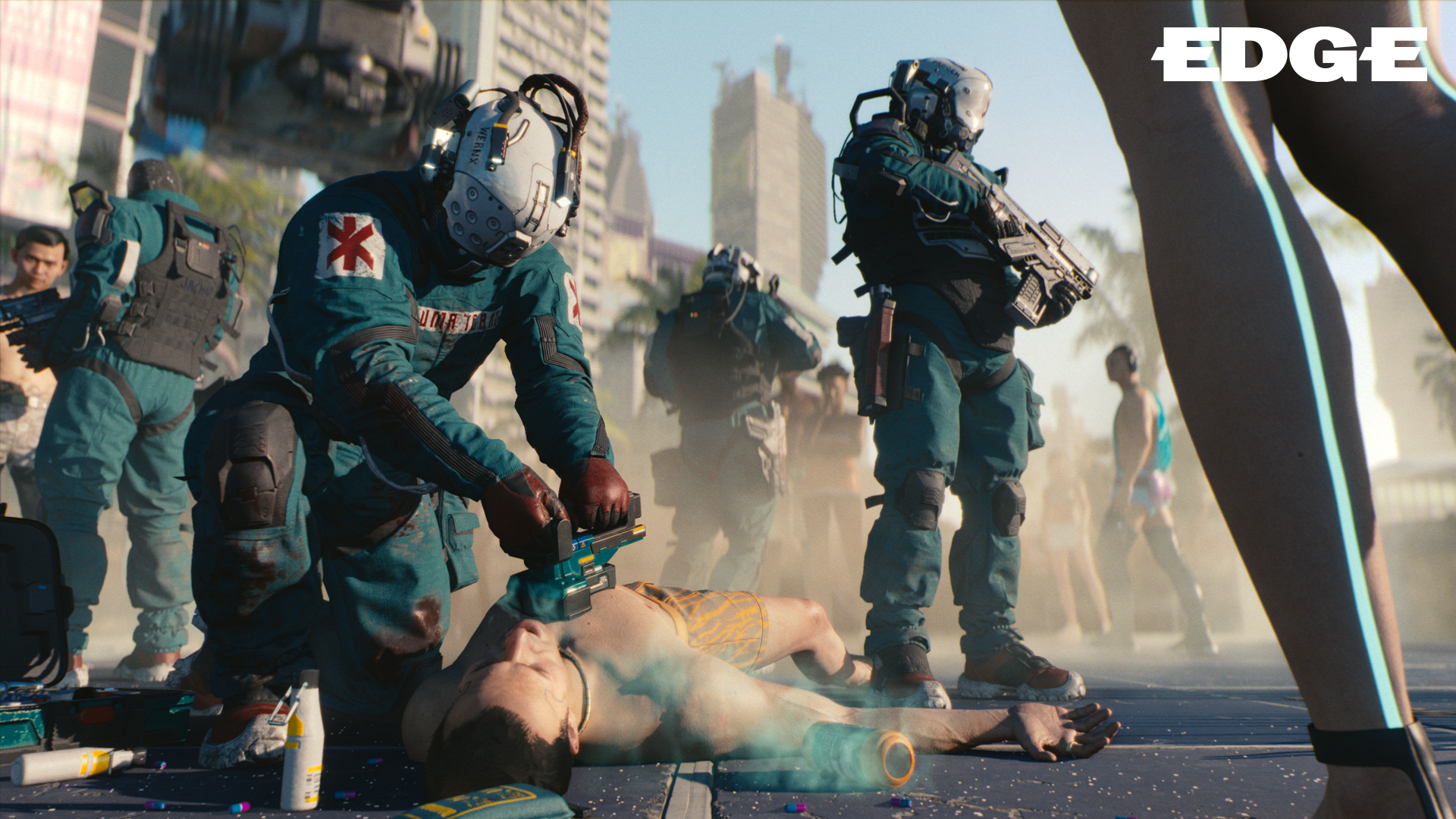
Now that the launch dust has settled, it feels like a reasonable moment to pause and reflect on the Cyberpunk 2077 story – not only because it may help in identifying danger signs in the future. There are two big things to note before digging into the disasters around its development and release, though. First, the game has already made a lot of money, albeit significantly less than expected. Shifting 13 million copies in its first ten days, the game briefly made CD Projekt the most valuable company in Poland, before news of catastrophic bugs kicked the stock price into reverse. At the time of writing it's the biggest game launch ever in terms of digital sales, grossing $609 million via those channels as of December 31.
From the perspective of CD Projekt's management, the worst is arguably in the past now. Given enough patching and expressions of regret, Cyberpunk 2077 may eventually even be deemed a success, a late-flowering Early Access title in all but name, similar to Fallout 76 and No Man's Sky. As things stand today, it remains a game with many strengths, and CD Projekt has money to burn fixing up its weaknesses. The danger is that the story of its redemption will eventually eclipse the lessons of its failures.
The second factor to keep in mind is that while Cyberpunk 2077's creation appears to have been especially blighted – whether you're talking about the transphobia of its marketing or the studio's culture of overwork – its notoriety is as much a question of visibility as anything. The unfortunate truth is that there is nothing unique about this game's circumstances. Mismanagement, crunch, discrimination, issues around representation and questionable marketing tactics are endemic in big-budget game development. CD Projekt's widely beloved The Witcher 3: Wild Hunt was itself the product of a workplace culture that co-founder Marcin Iwinski has called insufficiently "humane".
Cyberpunk 2077 just happens to be the specimen caught with its pants down, the strains of its creation only too apparent in its abundance of bugs and glitches. As the studio's first non-Witcher project, and an RPG shooter based on a venerated '80s tabletop game to boot, it was always going to attract an extraordinary level of attention. But ultimately that is to consumers' advantage, inasmuch as it makes the limitations of its business model and creative culture impossible to ignore. It's a game that invites serious and holistic reflection about how games of this stature are made, sold and played.
Strategic errors
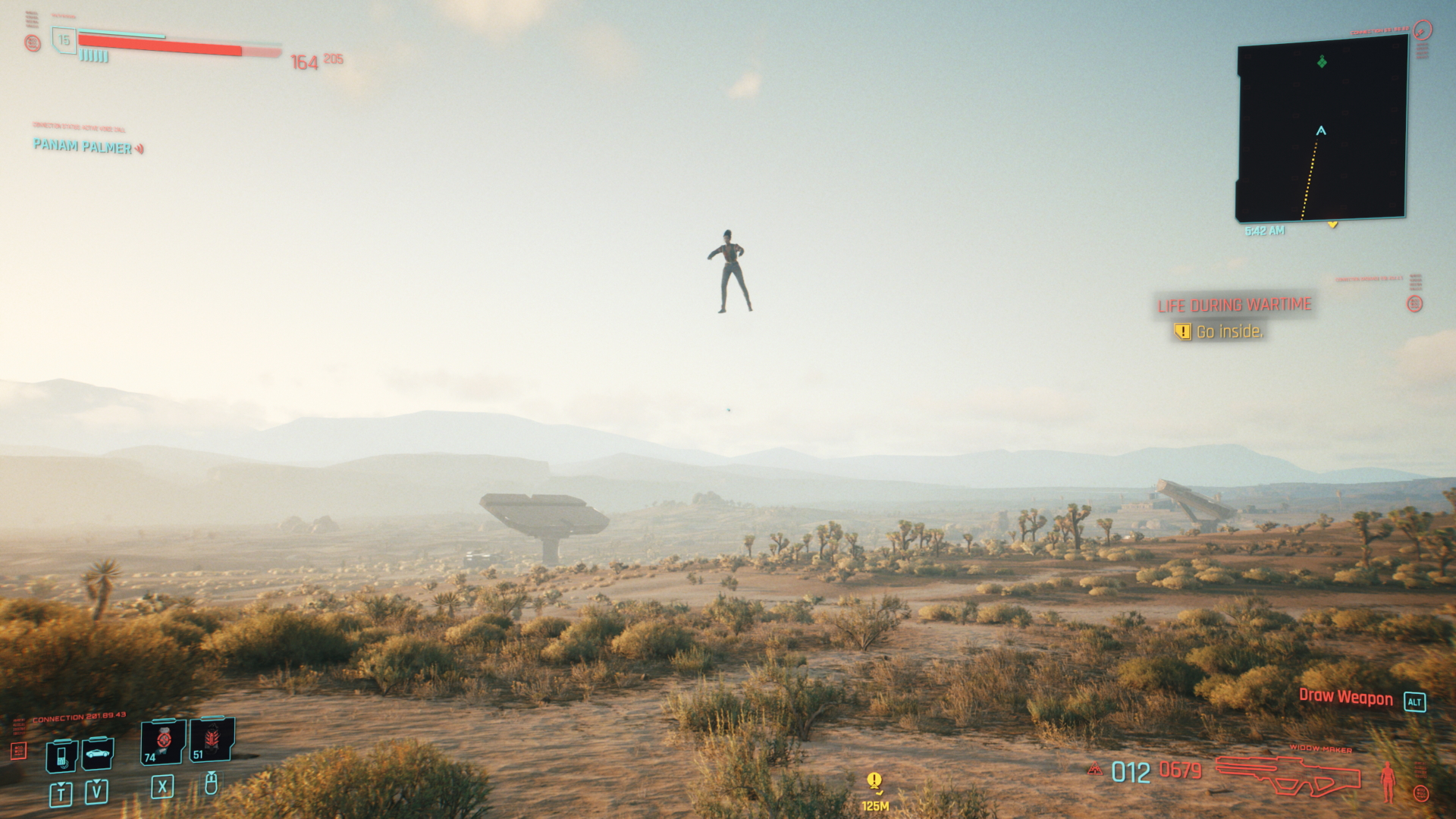
The process of Cyberpunk's creation involved key strategic errors, some of them exposed by a January 2021 Bloomberg report citing 20 current and former developers. The game was announced in 2012 yet it took until 2016 to enter full development, with a small team, after the completion of the final Witcher 3 DLC pack. It represented a colossal change of tune: a different genre, a new licence, and firstperson rather than thirdperson presentation, with a setting mixing GTA's freeform open city with the esoteric workings of Deus Ex, all of it presented without loading breaks.
One critical early misstep was to dismiss concerns about the challenges of delivering all this on PS4 and Xbox One, which even in 2016 were no match for dedicated gaming PCs. Another was to develop a new version of CD Projekt's REDengine alongside the game. Cyberpunk 2077 is the work of a much larger team than The Witcher 3, but employees claim that the studio did a poor job of organising communication between departments; too often, the expanded headcount simply caused confusion. There were smaller-scale mistakes: according to Bloomberg's sources, months of development were blown on a demo for E3 2018 that painted an overly optimistic picture, with several features shown off that would fail to appear in the final game.
The mistakes from above led, inevitably, to long hours below. CD Projekt delayed the game repeatedly, from April through September and November to December 2020, but wanted to get it out promptly enough to justify re-releasing it on PS5 and the Xbox Series consoles. In June 2019, Iwinski promised that the company wouldn't order its development staff to crunch, and was "committed" to avoiding overtime. And yet in September 2020 the studio's executives instructed employees to work six-day weeks. According to individual developers posting on Twitter and Reddit, many teams had, in fact, been crunching since 2019 or even earlier.
Weekly digests, tales from the communities you love, and more
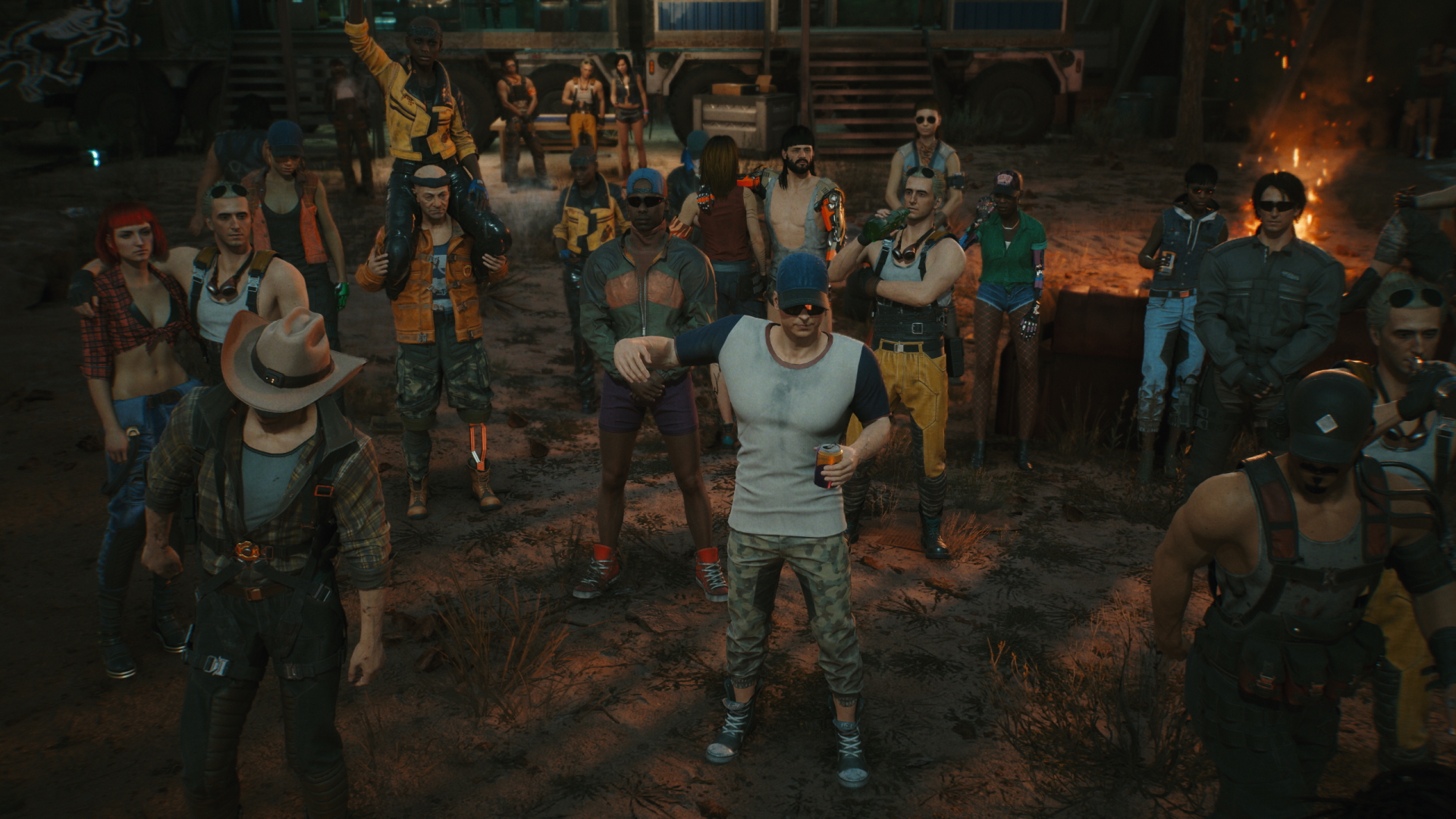
One way CD Projekt's rank and file might have pushed back is by unionising. Trade unions are not a universal panacea: labour laws and attitudes toward unionisation differ from place to place, and game development is inherently messy – there's only so much you can anticipate. But when they're doing their jobs, unions tackle poor management, teaching leaders to engage with fundamental problems rather than kicking them down the road. CD Projekt execs have proved as ambivalent about the benefits of unionisation as they have been blithe about the effects of crunch in the past. Speaking to Le Monde in June 2018, Marcin Iwinski waved the point aside, arguing that his employees are paid well and that sacrifices are a necessary aspect of game development. He's more contrite nowadays, promising in January that the studio will avoid overtime on all future projects.
A union might not have done much about Cyberpunk 2077's representations of marginalised people and the conduct of its marketing teams, which suggest more pervasive cultural problems. The game's social media presence has, at times, made its in-game portrayals of sleazy advertising seem positively wholesome. Its Twitter feed has indulged in transphobic jokes and co-opted trans rights hashtags, walking everything back with apologies that still allow the most unsavoury sections of game fandom to feel like they're being catered to.
In June 2019, the studio released a lurid image of a trans model, the infamous Mix It Up Girl, that likened gender identity to making a cocktail. Following an outcry, it tried to pass the image off as the work of an exploitative advertiser within the game. With zero irony, it then adopted the Mix It Up Girl as a key publicity fixture. The game itself makes some effort towards conciliation, allowing you to play as a trans character, but it also reduces gender to a question of genitalia and voice pitch.
The problem with 'punk
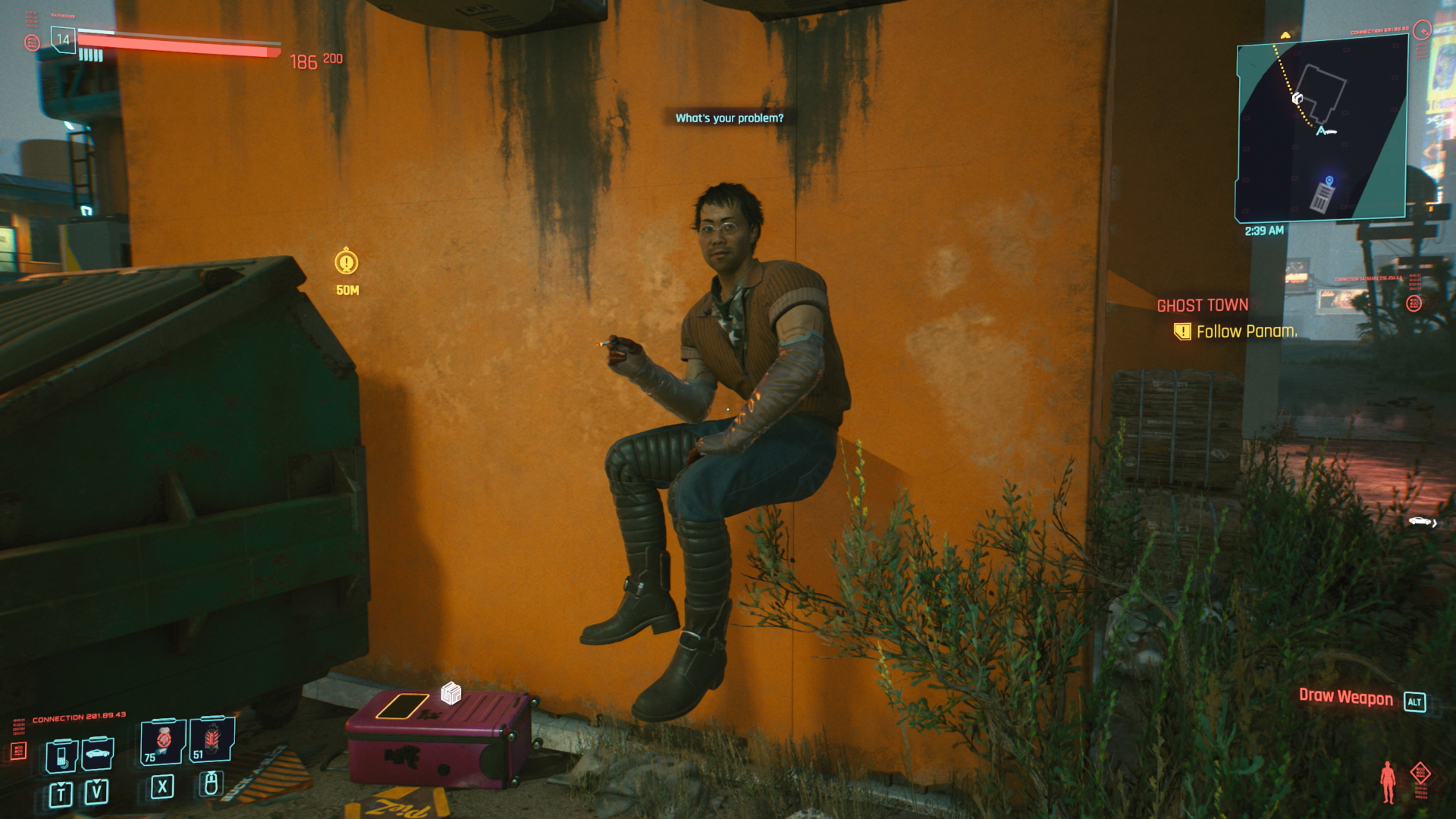
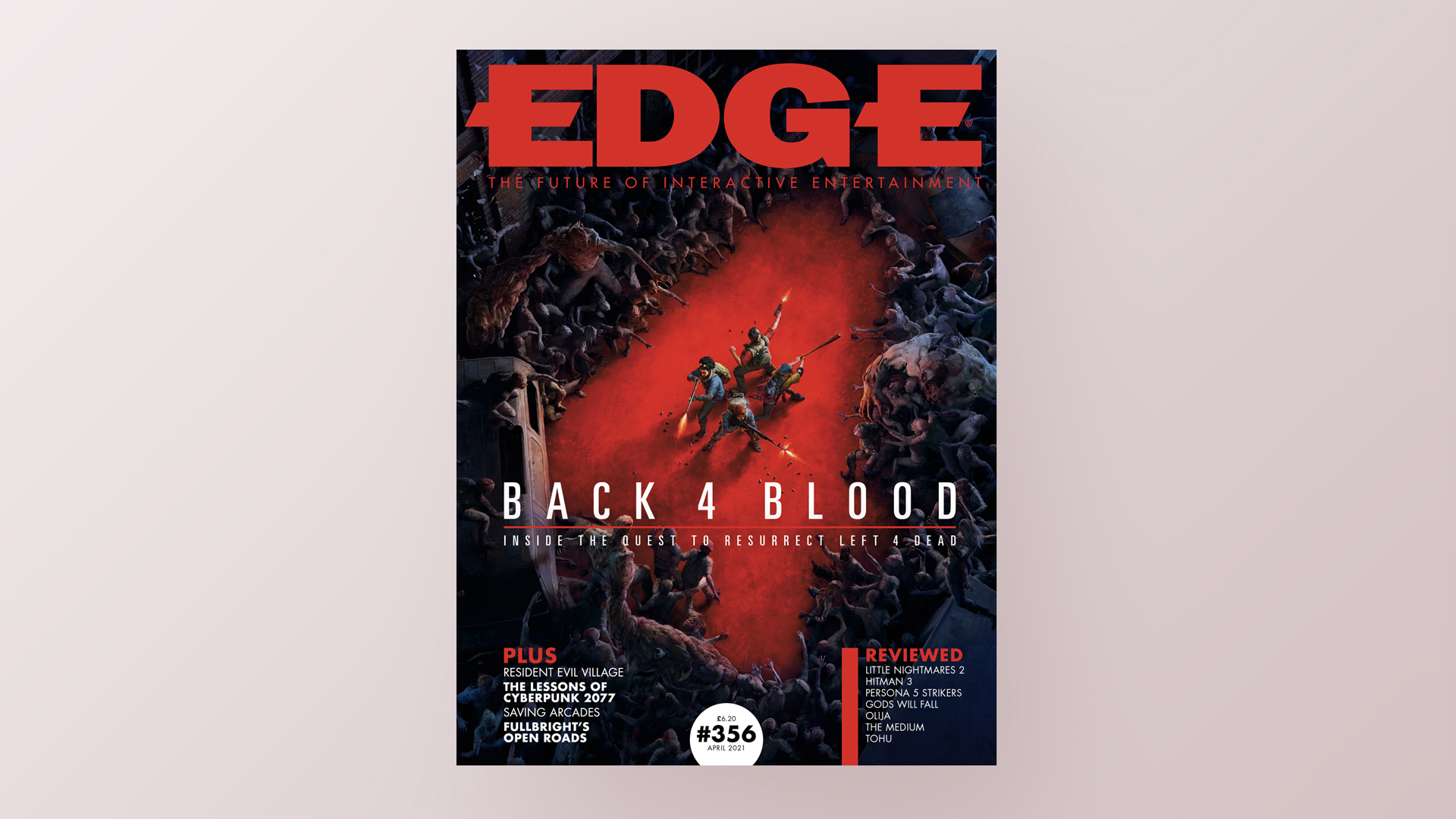
If you want more great long-form games journalism like this every month, delivered straight to your doorstep or your inbox, why not subscribe to Edge here.
An underlying issue is that cyberpunk is not an especially progressive genre, at least in regard to the canonical books and films of the 1980s to which Cyberpunk 2077 overwhelmingly plays fealty. 'Classic' cyberpunk can be provocative, even today, in portraying capitalism's corruption and wastefulness, but it often treats its dystopic world as a chrome-plated playground for puerile fantasies of sex and violence. It uses the blurring of flesh with technology to pose broad questions about human identity, but is often actively hostile to, or gleefully lecherous about, other kinds of blurring, such as the destabilising of gender binaries. It is very much the ancestor of the 'transhumanism' expressed by billionaires such as Elon Musk, where the radical elements of new tech are harnessed towards the maintenance of the social and economic status quo. It is also awash with racial stereotypes – particularly of East Asian and Japanese people, many of which surface, katanas and all, in Cyberpunk 2077.
CD Projekt might have overcome this inheritance by spending less time with 'canonical' texts and more with -punk games from non-white, non-male and non-cisgender creators, such as 1870: Cyberpunk Forever and Diaries Of A Spaceport Janitor. It might also have consulted, or consulted more seriously, with advocacy organisations for lesbian, gay, bi and trans people such as the Trans-Fuzja Foundation in Poland or GLAAD in the US. Above all, it might have hired more people from the marginalised groups it proposes to depict, or given existing staff more oversight over these aspects of the game. There seems to be a fundamental friction within CD Projekt: it has backed LGBTQ causes and is capable of writing sensitively about people who aren't straight white men, but it has also released games in which you gather porno cards of female characters, some of whom have gone on to feature in Playboy.
If Cyberpunk 2077 is indelibly marked by such issues, it isn't wholly defined by them. For all its technical issues, its dehumanising promotional strategies and faux-edginess, the game's polluted, winding city is a joy to behold and explore (at least when it's performing well on hardware that can carry its weight convincingly). It also offers some powerful writing – take the mission in which you visit a sexbot brothel in expectation of a hackneyed sex scene, only to be surprised by a conversation about mortality and loneliness. It's a moment of human connection in an inhuman city – and a calculated subversion of expectations for CD Projekt, with its penchant for raunchy cutscenes. If only the same self-scrutiny and thoughtfulness had been applied across the entirety of the game's creation. As Cyberpunk 2077's sadder stories remind us, history loves repeating itself. It's now up to CD Projekt's bosses, and those at other studios afflicted by similar issues, to demonstrate that they have learned from all this – and not just in the form of a patch.
This feature first appeared in Edge Magazine. For more excellent features, like the one you've just read, don't forget to subscribe to the print or digital edition at Magazines Direct.
Edge magazine was launched in 1993 with a mission to dig deep into the inner workings of the international videogame industry, quickly building a reputation for next-level analysis, features, interviews and reviews that holds fast nearly 30 years on.



